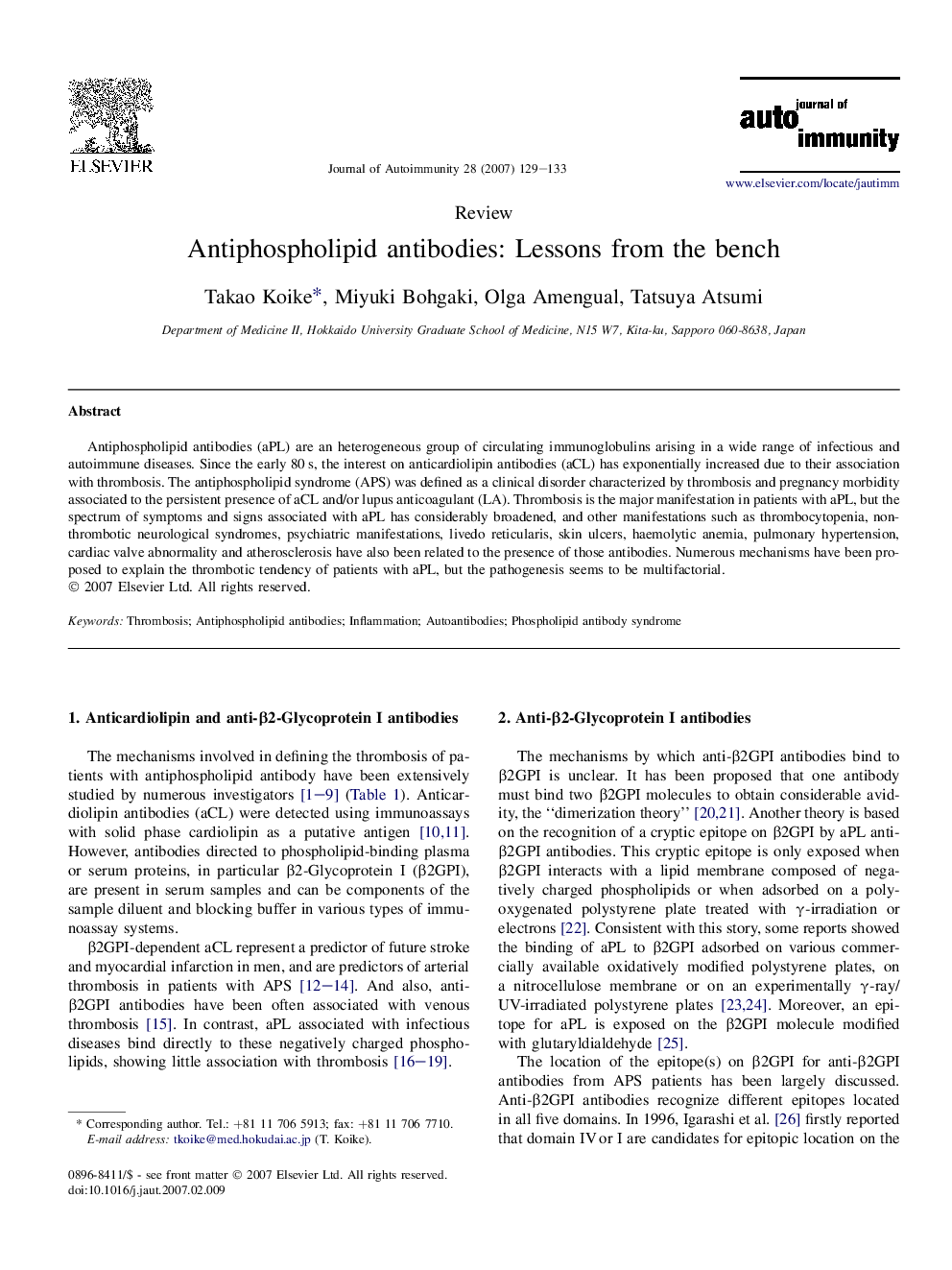| Article ID | Journal | Published Year | Pages | File Type |
|---|---|---|---|---|
| 3368463 | Journal of Autoimmunity | 2007 | 5 Pages |
Antiphospholipid antibodies (aPL) are an heterogeneous group of circulating immunoglobulins arising in a wide range of infectious and autoimmune diseases. Since the early 80 s, the interest on anticardiolipin antibodies (aCL) has exponentially increased due to their association with thrombosis. The antiphospholipid syndrome (APS) was defined as a clinical disorder characterized by thrombosis and pregnancy morbidity associated to the persistent presence of aCL and/or lupus anticoagulant (LA). Thrombosis is the major manifestation in patients with aPL, but the spectrum of symptoms and signs associated with aPL has considerably broadened, and other manifestations such as thrombocytopenia, non-thrombotic neurological syndromes, psychiatric manifestations, livedo reticularis, skin ulcers, haemolytic anemia, pulmonary hypertension, cardiac valve abnormality and atherosclerosis have also been related to the presence of those antibodies. Numerous mechanisms have been proposed to explain the thrombotic tendency of patients with aPL, but the pathogenesis seems to be multifactorial.
